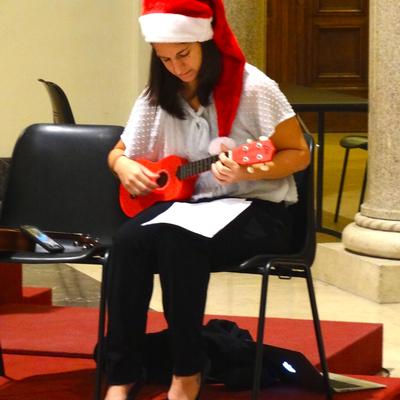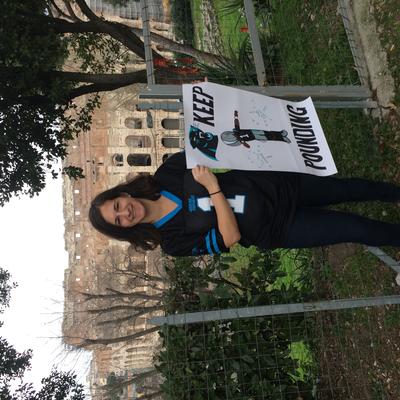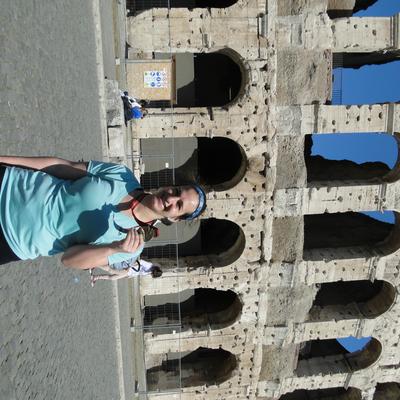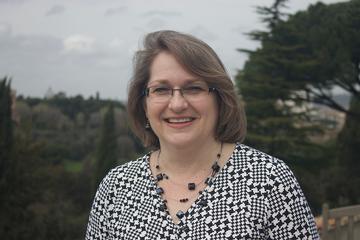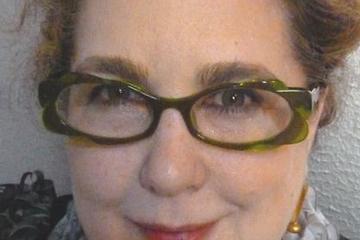
Rebecca Cohen, program and research specialist in the USCCB’s Secretariat for Ecumenical and Interreligious Affairs, talks about her desire to work in ecumenical and interreligious dialogue, her academic studies and Pope Francis' call to create a culture of encounter.
What was your area of study and which pontifical university did you choose and why?
I studied at three pontifical universities during my time in Rome. I had known for several years that I wished to work in ecumenical and interreligious dialogue, and particularly Jewish-Catholic dialogue, so I applied for the Russell Berrie Fellowship in Interreligious Studies at the Pontifical University of St. Thomas Aquinas (Angelicum), which I completed in my first year. I continued my studies at the Angelicum in order to complete a licentiate in sacred theology in ecumenism. During those first two years, I discovered the program in Jewish studies and Jewish-Christian dialogue, offered by the Cardinal Bea Centre at the Pontifical Gregorian University, which I followed in my third year. I also took the opportunity to complete a one-year certificate in Islamic studies from the Pontifical Institute for Arabic and Islamic Studies (PISAI).
I am proud of what I was able to accomplish during my time in Rome, but it certainly took some adjustment. Courses are quite different from the American educational system and at time credits did not always transfer easily. When I first moved to Rome, I had high hopes for what I could accomplish, which I did with perseverance and some grace, and it remains one of the most treasured times of my life.
What opportunities did your studies offer and how are your studies at the pontifical universities related to the work you do today?
The Russell Berrie program is singular in its support of students interested in interreligious dialogue, and the Bea Centre’s approach is unique with its focus on Jewish religious thought in conversation with Catholic theology. These programs remain at the centre of my work as staff support for the U.S. Conference of Catholic Bishops’ dialogue with the Jewish community in the United States. It provided the background and an opportunity to familiarize myself with dialogue from a Catholic institutional perspective.
What advice would you give lay women who would like to study in Rome?
Throughout my time in Rome, I learned it was important to have open lines of communication. Being a lay woman is a unique perspective and, in universities with centuries of traditions, it could be an adjustment for both myself as a student and the university. However, I always found people with an abundance of charity, willing both to listen to any concern I brought to them and to explore ways to address them.
How did your studies help you to become more able to serve the Church and society?
Two lessons from my time in Rome stand out. The first is the importance of investing in my own spiritual life as I continue my service to the Church. I had always considered myself to be more intellectual than spiritual, but my experience in Rome taught me that spending time on my spiritual well-being was just as important as my studies at the university. It is a constant reminder that, in serving the Church and the U.S. bishops, it is God’s will that I seek to carry out.
On the other hand, the exposure to the worldwide Church that I encountered during my time in Rome reminds me of its catholicity. My work in dialogue is not always well known or even well received. The vast diversity of the Church, which speaks to its core mystery, has taught me that each of our individual journeys remains essential and, at times, it is necessary to meet others where they are at.
What do you think is an area of most pressing concern in your area of study or of your profession?
Perhaps most pressing is helping the members of the Church understand the central importance of dialogue in the very life of the Church. Pope Francis continues to call us all to create a culture of encounter, which goes beyond institutional dialogue to adopting the posture of dialogue.
What, in your opinion, is the importance of the role of laity in the Church at a decisional level?
Dialogue takes place in all areas of life, perhaps even more so in the secular world where we interact daily with people from all walks of life. As its proper realm of activity, the role of the laity is even more pronounced in promoting and modelling fruitful relations.
Rebecca Cohen is the program and research specialist in the USCCB’s Secretariat for Ecumenical and Interreligious Affairs. In this capacity, she represents the USCCB in multilateral coalitions, such as the Shoulder to Shoulder Campaign and Religions for Peace – USA. She also staffs the bishops’ dialogues with the American Jewish community. In addition to her studies in Rome, she completed a master’s in historical and systematic theology at the Catholic University of America and has presented papers at the Emerging Leaders Conference.
Photos courtesy Rebecca Cohen. We asked our alumnae to share a special photo from their Lay Centre days. Rebecca shared the ones below. (Left to right: Photo 1 - Celebrating Advent at the Pontifical Gregorian University, December 2014. Photos 2 and 3 - Rome Marathon 5K Fun Race 2016.)
Photo 1 Photo 2 Photo 3
